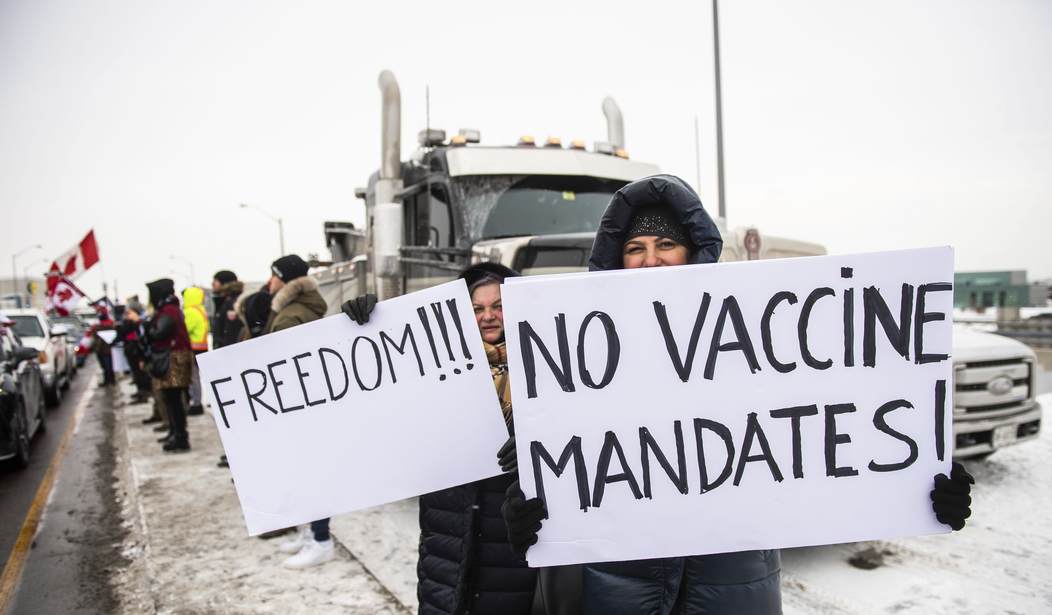In January 2022, vaccine exemptions for Canadian and American cross-border truckers ended, leaving about 15,000 Canadian truckers who regularly cross the border in the performance of their jobs suddenly unemployed.
Their response was heartening. Thousands of truckers joined “Freedom Convoys,” shutting down border crossings and finally ending up in the Canadian capital of Ottawa, where they virtually occupied Parliament Hill.
Canadian authorities wrung their hands for a while and then decided to declare a national emergency and invoke emergency powers. This allowed them to freeze protesters’ bank accounts, ban travel to protest sites, and compel trucks to tow vehicles blocking streets.
By law, the Canadian parliament must hold hearings on the use of emergency powers in order for the government justify their use. During those hearings, it has been revealed that the Biden administration was leaning heavily on the Trudeau government to crack down on the protests and allow the free flow of goods to proceed. Finance Minister Chrystia Freeland told the Public Order Emergency Commission of a phone call she got from Brian Deese, the director of the National Economic Council and Biden’s top economic adviser.
“They are very, very, very worried,” Freeland wrote in an email to her staff. “If this is not sorted out in the next 12 hours, all of their northeastern car plants will shut down.”
During the conversation, Deese acknowledged the integrated nature of the cross-border economy that Canadians regularly emphasize with American counterparts. Transport Canada analysis pegged the cost of the blockades at C$3.9 billion in halted trade.
Freeland asked Deese if he could arrange a phone call between Biden and Prime Minister Justin Trudeau. He would “try to make it happen,” she wrote to staff.
Brian Clow, Trudeau’s deputy chief of staff, had already heard from White House officials including Juan Gonzalez, special assistant to the president and the National Security Council senior director for the Western Hemisphere.
Gonzalez wanted to connect Trudeau’s national security adviser, Jody Thomas, with officials at the Department of Homeland Security.
Why would Trudeau’s national security advisor want to confer with American officials at Homeland Security? It’s one mystery that Trudeau will have to clear up when he testifies before the committee next week.
Clearly, the Freedom Convoys scared the daylights out of both Biden and Trudeau. And one of the focuses of the committee will be whether or not the invocation of the emergency powers was necessary — or warranted.
The impact of the emergency powers on border blockades remains unclear. Documents tabled at the inquiry show that law enforcement agencies didn’t require the Emergencies Act to open up the border.
RCMP Commissioner Brenda Lucki told reporters after her testimony that the force used “existing tools” to carry out arrests near an Alberta crossing on Feb. 14 — the same day as the invocation. The protesters in Coutts, Alta., departed the area the next day.
Emails from government officials in Manitoba claimed a border blockade in that province was cleared without the need for emergency powers.
As is expected with a liberal government, the Canadians overreacted to a situation they didn’t understand and brought down the heavy hand of the state on ordinary people who simply disagreed with their vaccine mandates.
As it turns out, the mandates were a wasted effort and have since been withdrawn. It appears that Trudeau wanted to use the emergency decree to intimidate protesters rather than as any effort to “restore order.”









Join the conversation as a VIP Member